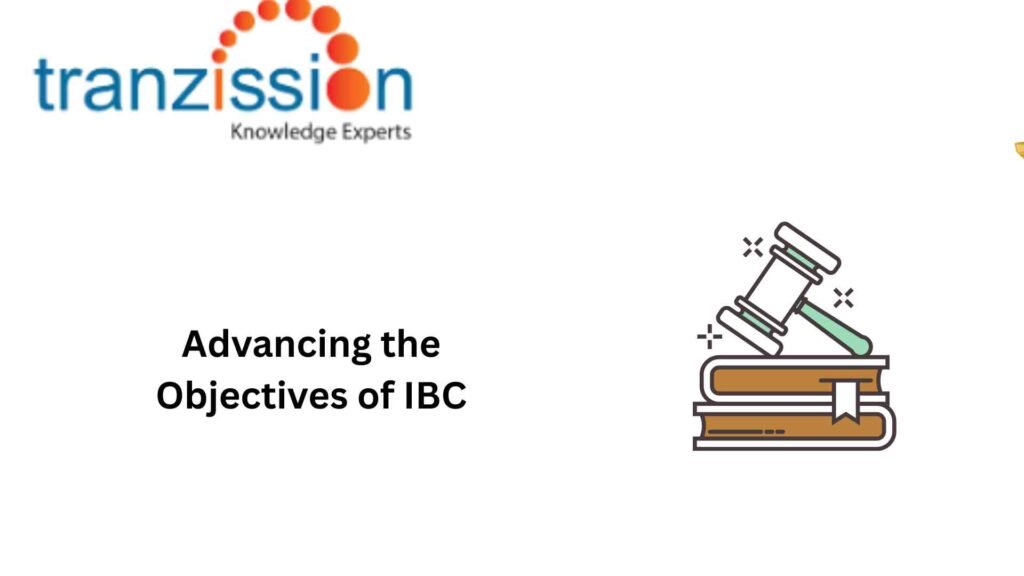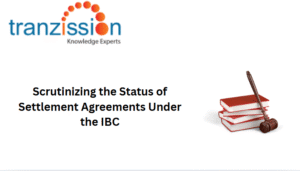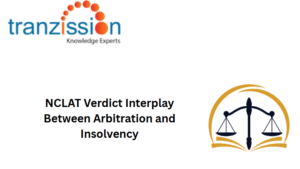
Advancing the Objectives of IBC

Table of Contents
To advance the Objectives of IBC (Insolvency and Bankruptcy Code, 2016 ) India needs to focus on streamlining the resolution process, promoting entrepreneurship, ensuring fair treatment of all stakeholders, and strengthening the regulatory framework, while also addressing challenges like delays and incentives.
Understanding the Section 14 Moratoriums
Section 14 of the Objectives of IBC establishes a moratorium, a period during which legal proceedings against a corporate debtor are suspended. During this period, certain actions are prevented to allow for a “breathing space” for the debtor to resolve its financial issues, which are listed below:
- The institution of suits or continuation of pending suits or proceedings against the corporate debtor, including execution of any judgment, decree, or order in any court of law, tribunal, arbitration panel, or other authority.
- The transferring, encumbering, alienating, or disposing of by the corporate debtor of any of its assets or any legal right or beneficial interest therein.
- Any action to foreclose, recover or enforce any security interest created by the corporate debtor in respect of its property, including any action under the Securitisation and Reconstruction of Financial Assets and Enforcement of Security Interest Act, 2002
- The recovery of any property by an owner or lessor where such property is occupied by or in the possession of the corporate debtor
Key Legal Debate – Is Arbitration Barred During Moratorium?
Judicial Divergence:
The Delhi High Court in Power Grid Corp. v. Jyoti Structures and others has held that arbitration can proceed if it does not directly impact the assets or liabilities under resolution. The Madras High Court in V.R. Swetha Naidu v. The Secretary to Government held that non-monetary arbitrations or those not involving enforcement may not be hit by the moratorium.
Strict Interpretation View:
Other benches have taken a broader approach to the moratorium, halting all forms of legal proceedings, including arbitration, until the resolution process concludes. Landmark cases like P. Mohanraj v. Shah Brothers Ispat Pvt. Ltd and Sundaresh Bhatt v. CBIT demonstrate the strict interpretation of the moratorium under section 14 of the Objectives of IBC, emphasising that it bars proceedings impacting the corporate debtor’s assets and estate.
Read more : What is Form G in IBC – Invitation for Expression of Interest
Why Arbitration Should Continue – Core Arguments
There have been arguments in favour of arbitration proceedings during the resolution process and those against, which have been summarised below:
Arbitration as a Neutral Adjudication Mechanism:
Arbitration does not necessarily aim at asset recovery. For instance, it helps determine liabilities, contractual breaches, or disputes, which are essential to formulating resolution plans.
Enhancing Efficiency and Reducing Burden on NCLT:
Allowing arbitral tribunals to decide contractual claims prevents overburdening NCLTs (National Company Law Tribunals) with commercial litigation. Thus, NCLTs can focus on the resolution process, not case-by-case commercial adjudication.
Promoting Commercial Certainty:
Resolution Applicants and members of the Committee of Creditors (CoC) require an accurate determination of contingent liabilities or disputes to price their bids or approve plans. Further, arbitration proceedings, if paused, can delay the corporate insolvency resolution process (CIRP) due to a lack of clarity on crucial claims.
Insolvency Professional’s Perspective – Why This Matters
For insolvency professionals (IPs), understanding whether or not arbitration proceedings should be temporarily paused for:
Claim Verification and Plan Structuring:
RPs must rely on legal clarity and interpretation when admitting claims or valuing assets during CIRP. In such circumstances, arbitration awards or interim orders can serve as critical inputs during CIRP and liquidation.
Avoiding Post-CIRP Litigation:
Delaying arbitration might push resolution applicants or creditors into post-CIRP litigation and parallel continuation ensures resolution is comprehensive and final.
Role of Consent or Court Permission:
When a corporate debtor faces insolvency, its assets are under the control of the NCLT to ensure a fair and equitable distribution among creditors. Arbitration proceedings, if not carefully managed, could potentially affect this process.
Global Perspective and Legislative Intention
In Singapore, moratorium proceedings, including arbitration, typically commence upon the initiation of insolvency proceedings against a debtor, but exceptions can be made, particularly for disputes governed by arbitration agreements, with the Singapore International Commercial Court (SICC) having jurisdiction over such matters. Further, other insolvency jurisdictions, including the UK, adopt a balanced approach like they do not impose blanket bans on arbitration. Instead, they assess the nature of dispute, only halting proceedings that affect the debtor’s asset pool directly.
Conclusion
Moratorium prevents arbitration against the company and allows the company to continue or initiate proceedings to recover dues and maximise asset value. This leaves the party defending against the company’s claims in a precarious and uncertain position. Thus, the interlink between arbitration proceedings and moratorium under section 14 of the Objectives of IBC adds to the complexity of the resolution process for the corporate debtor, creditors, insolvency professionals, and the NCLT. To avoid such complications, it is recommended to allow arbitration proceedings during the Objectives of IBC moratorium, which is both practical and aligned with the spirit of commercial resolution.





